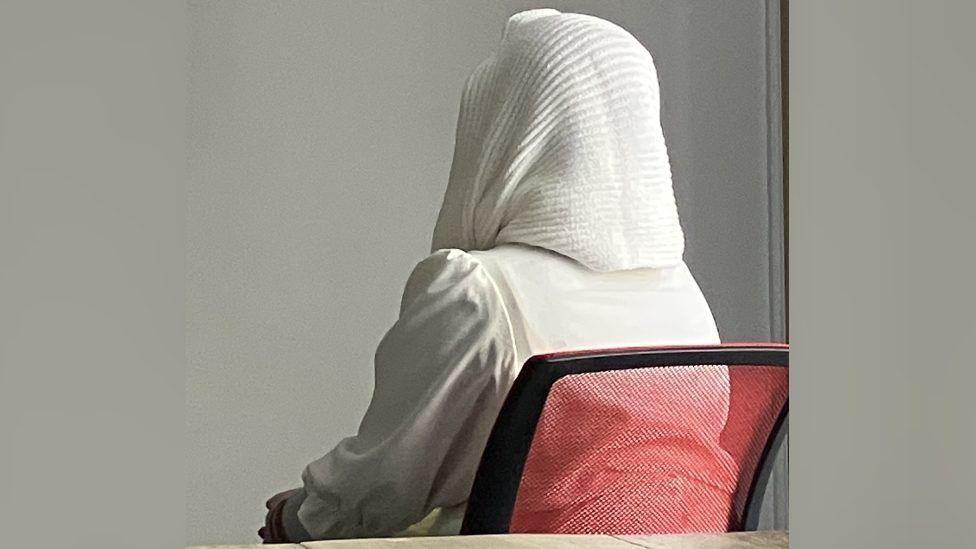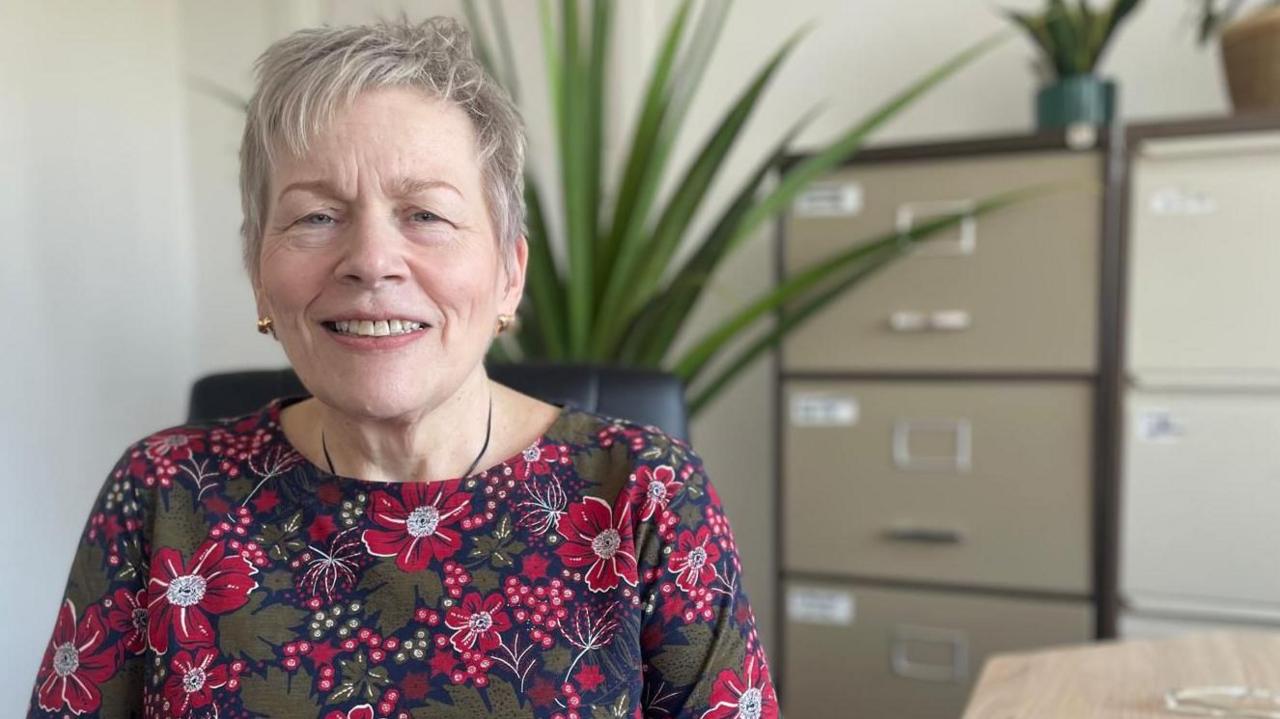Lack of immigration legal aid 'emotional torture'

Elinor Mattey said people were vulnerable to exploitation by people posing as immigration advisers
- Published
A lack of immigration legal services in Wales is having a severe impact on people and in some cases leading to exploitation, according to a think tank.
Bevan Foundation research has found 60% of immigration legal aid providers and offices in Wales have closed since 2018, external.
One volunteer who works with asylum seekers said the system was "emotional torture" for many.
The UK government said it had reviewed civil legal aid and recently consulted on uplifts that would "increase the spend on immigration and asylum fees by 30 per cent".
Legal aid is a public fund which can help pay for legal advice, family mediation and representation in a court or tribunal.
Wide-ranging changes to civil legal aid came into force in April 2013, cutting funding from areas such as divorce, housing, debt and non-asylum immigration.
At the time, the UK government said it intended to target resources at those most in need and reduce the legal aid bill by £350m a year by 2015.

Yasmin says people are struggling to find a solicitor who can take their case and long waits for interviews
'They are now broken'
Yasmin, not her real name, said her experience of seeking asylum in Wales was swift, after she left her home in Iraq more than 15 years ago.
But she said she had seen the system struggle in the last decade while she volunteered to support other refugees.
She described the "emotional torture" of people she supported unable to find a solicitor for months, with some unaware of their right to complain when mistreated, and waiting years for a decision.
"They've lost so much energy and faith and belief that they are now broken," she added.
"You think you survived and then you're still drowning."
The advocate, who is studying for a degree in counselling and psychology, said there were plenty of people like her who wanted to use "their time and experience" with the system to make the process easier.
"We need to increase the legal aid to have more solicitors, because there are more people coming into the country, so we need more solicitors," she added.
Under the current system, solicitors typically receive fixed fees for standard asylum cases based on the average number of hours of casework needed.
Currently, the fixed fee is £413 based on an underlying hourly rate of £48.24 outside of London, and £52.65 in London.
After a review of the civil legal aid system, the Ministry of Justice (MoJ) is proposing, external to increase the legal aid rate for immigration work to a minimum hourly rate of £65.63 outside London and £69.30 in London, which would increase the fixed fee to £559.
The review said the current fees were creating "acute pressures around the sustainability of the sector".
Hourly rates for immigration work were last increased in 1996.
'People are unable to find justice'
The Bevan Foundation has found six in 10 immigration legal aid providers' offices in Wales have closed, with five providers now operating six offices.
"It's a really alarming rate and there's no indication that that decline is going to slow down," said Elinor Mattey, access to justice project officer at the Bevan Foundation.
Ms Mattey said people were affected financially and vulnerable to exploitation by people posing as immigration advisers.
"Without that access to justice, you can't get your refugee status and without your refugee status, you can't work and you can't integrate as much as you'd like to; you're left in a state of limbo," she added.
"People are unable to find justice."
The 25-year-old said while any fee increase by the UK government would be welcome, she did not think it was enough.
She has called on the Welsh government to increase funding for third-sector services to take pressure off existing legal aid providers.

Ruth Brown says there have been unusually long cases of some people waiting seven years for their asylum interview
Ruth Brown is the legal director of Asylum Justice, a law firm that provides legal advice and representation using charitable grants.
Over the last few years, she said the work had "transformed" from dealing mostly with appeals to picking up initial asylum applications as legal aid offices shut.
She said there have been unusually long cases of some people waiting seven years for their asylum interview, with a small minority waiting four or five years.
The immigration solicitor said it was a particularly tough area of law to work in, with "very, very long hours to plug the gap between the amount of work needed to do a proper job, and the amount of time paid in public funds".
Ms Brown said two years ago the proposed legal aid fee increase might have made a difference, but it might now be too little too late to attract lawyers back.
A spokesperson for the Ministry of Justice (MoJ) said it had completed a full review of civil legal aid and "recently consulted on uplifts that would increase the spend on immigration and asylum fees by 30 per cent".
"The department has also secured additional funding to boost the number of days the Immigration and Asylum Tribunal will be sitting in 25/26, helping to speed up the processing of asylum appeals," they added.
The Welsh government said it provided £120,000 grant funding last year "to support immigration legal advice providers to deliver projects aimed at increasing provision in Wales."
"We will continue to work on this with the Immigration Legal Advice network, which includes the Bevan Foundation, and we will continue discussions with the UK government on the matter," a spokesperson added.